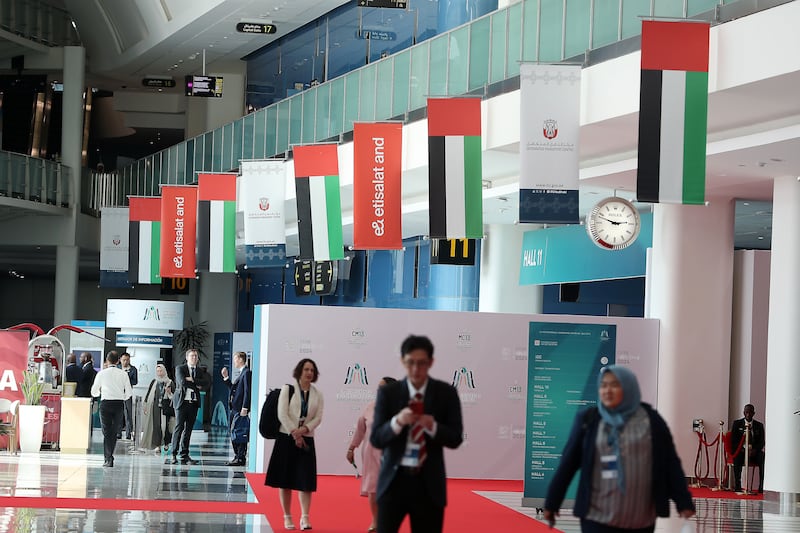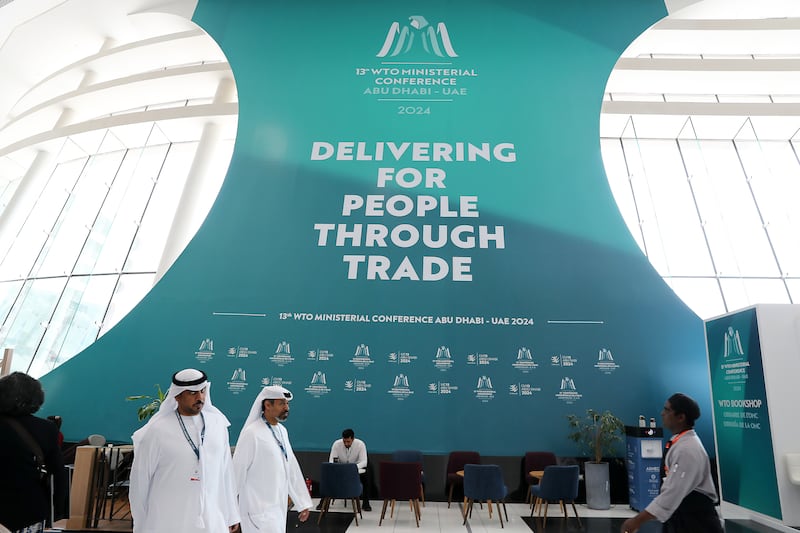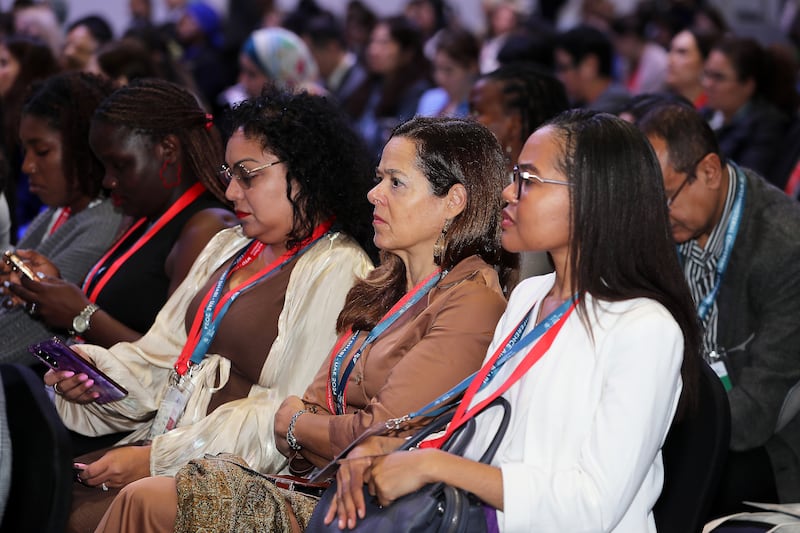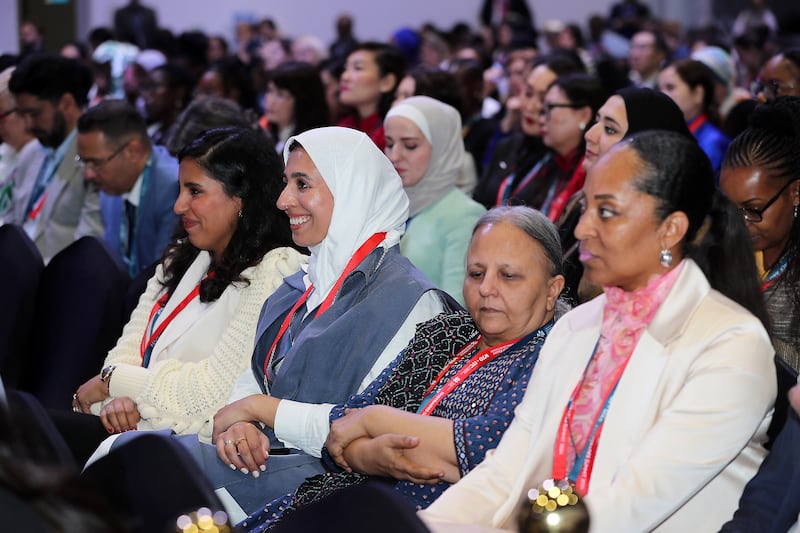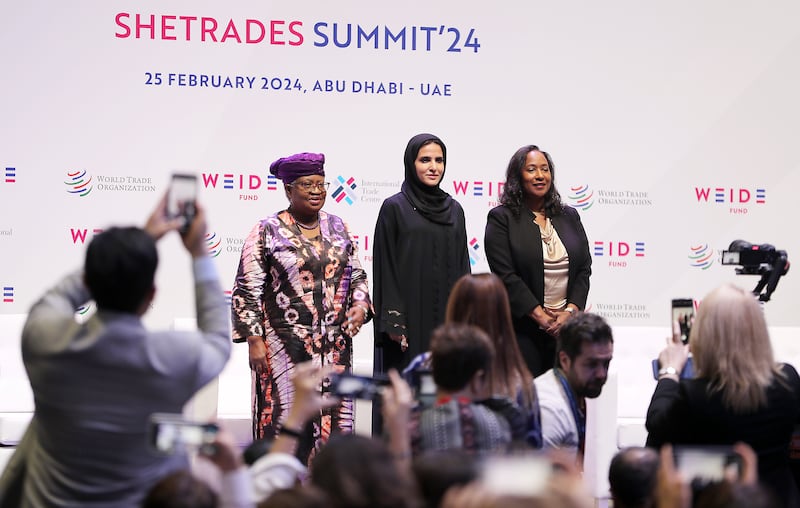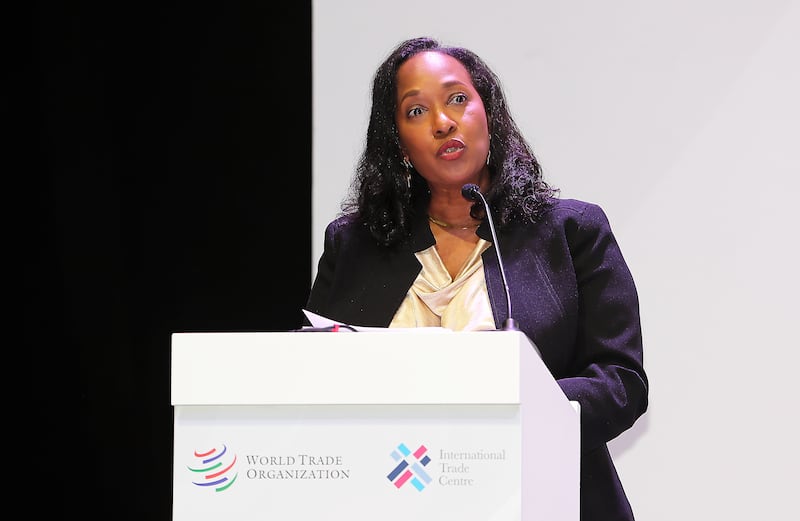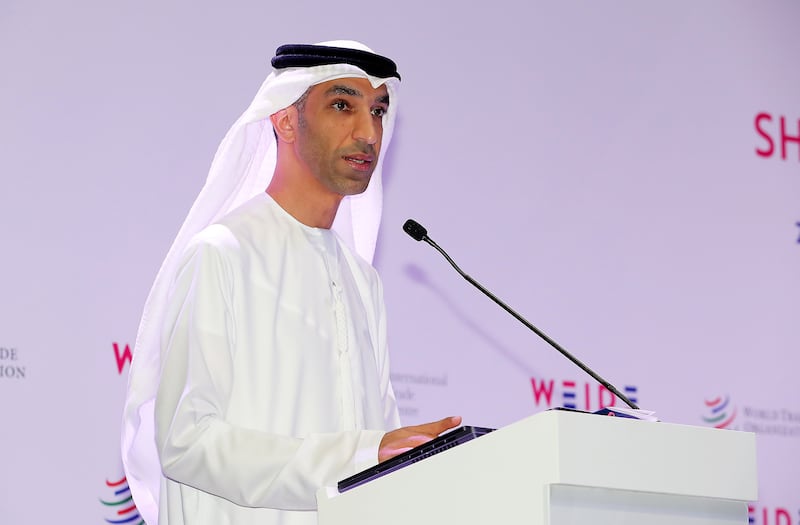The UAE aims to conclude more Comprehensive Economic Partnership Agreements (Cepas) with African countries as the Arab world’s second largest economy continues to boost its trade ties globally.
The Emirates has already completed talks with Kenya, Mauritius and the Republic of Congo and it aims to conclude more deals with African countries, Juma Mohamed Al Kait, assistant undersecretary for international trade affairs at the Ministry of Economy, said.
He spoke to The National on the sidelines of the World Trade Organisation’s 13th ministerial conference in Abu Dhabi on Wednesday.
“More deals with African countries will increase the market and enlarge our Cepas in Africa,” Mr Al Kait said.
“There are a number of agreements that will be announced down the road.”
Last week, the UAE and Kenya concluded negotiations for a Cepa in a milestone deal that will provide further access to the high-growth country and expansion into sectors from food to technology.
The two trading partners will seek to tap into opportunities in sectors including food production, mining, technology and logistics, Dr Thani Al Zeyoudi, Minister of State for Foreign Trade, said in a post on X on Friday.
The pact comes after the UAE concluded the terms of a deal with Mauritius and the Republic of Congo in December.
The UAE has already concluded Cepas with India, Israel, Indonesia, Turkey, Georgia, Cambodia, Colombia, South Korea and Costa Rica.
“We have signed a number of Cepa agreements that have already entered into force. Now we are doing an awareness campaign for the private sector to utilise those agreements in the best way,” Mr Al Kait said.
“Those agreements will not only benefit the private sector in the UAE but also the investors who would like also to establish their businesses here and grow from [the] UAE to the region.”
He expressed optimism that member countries would iron out differences to finalise new agreements during the WTO ministerial conference in Abu Dhabi.
"As a host, we will do our best to facilitate and to bring positions closer," Mr Al Kait said.
"The principle in this organisation is consensus. So, we want to make sure that everyone is included in the discussion and also their concerns are covered and addressed in those agreements.”
During the conference, member countries are discussing WTO reforms, minimising agriculture and fisheries subsidies, and whether to extend the existing e-commerce moratorium, among others.
The UAE is providing a $10 million grant to support several crucial initiatives of the WTO, including the Fisheries Funding Mechanism, the Enhanced Integrated Framework, and the Women Exporters in the Digital Economy Fund.
The country is adopting an open trade policy, Mr Al Kait said.
"During the financial crisis, during Covid times, we were one of the first countries globally in terms of recovery and we've seen our growth in trade, [it has been] very positive compared to the global economy growth in terms of foreign trade."
In 2023, the UAE’s non-oil foreign trade hit a record Dh3.5 trillion ($953 billion), bolstered by its economic diversification plans, amid the signing of new Cepas with major economies around the world.
